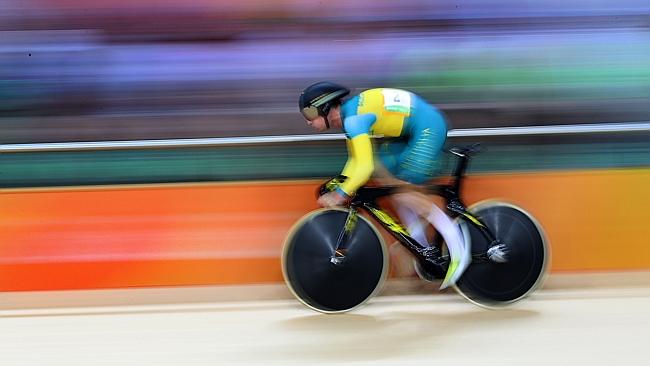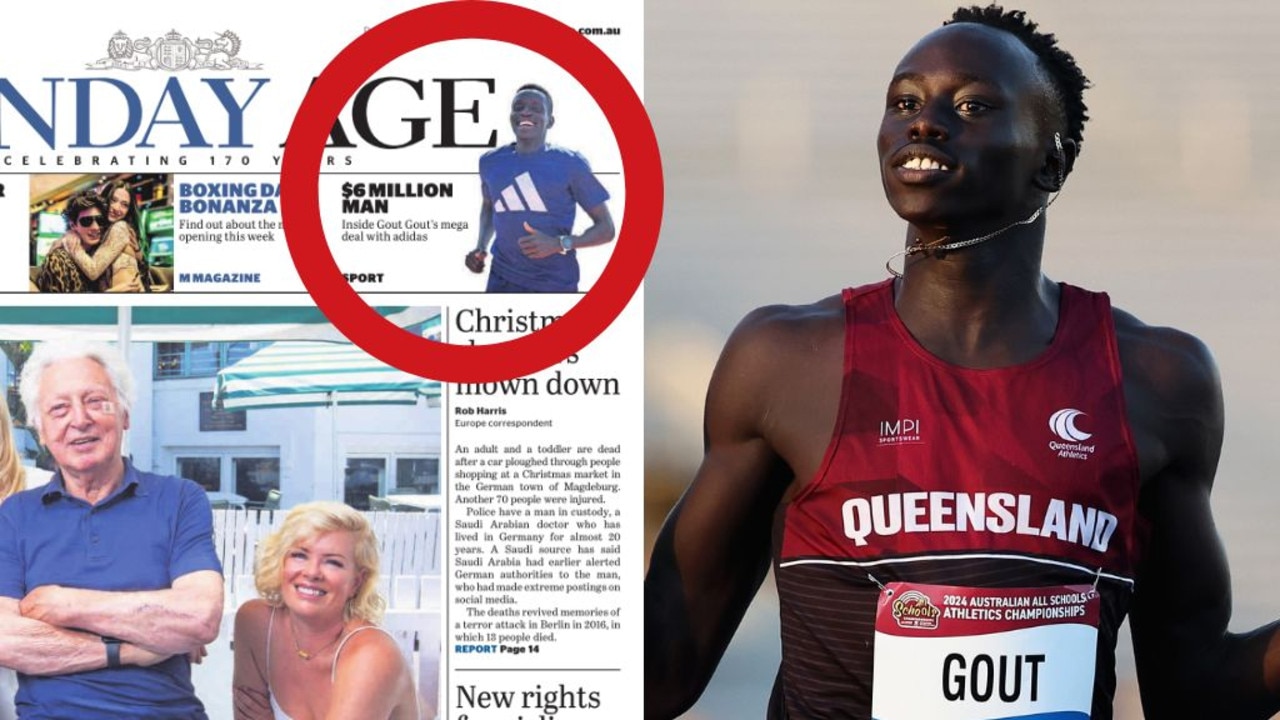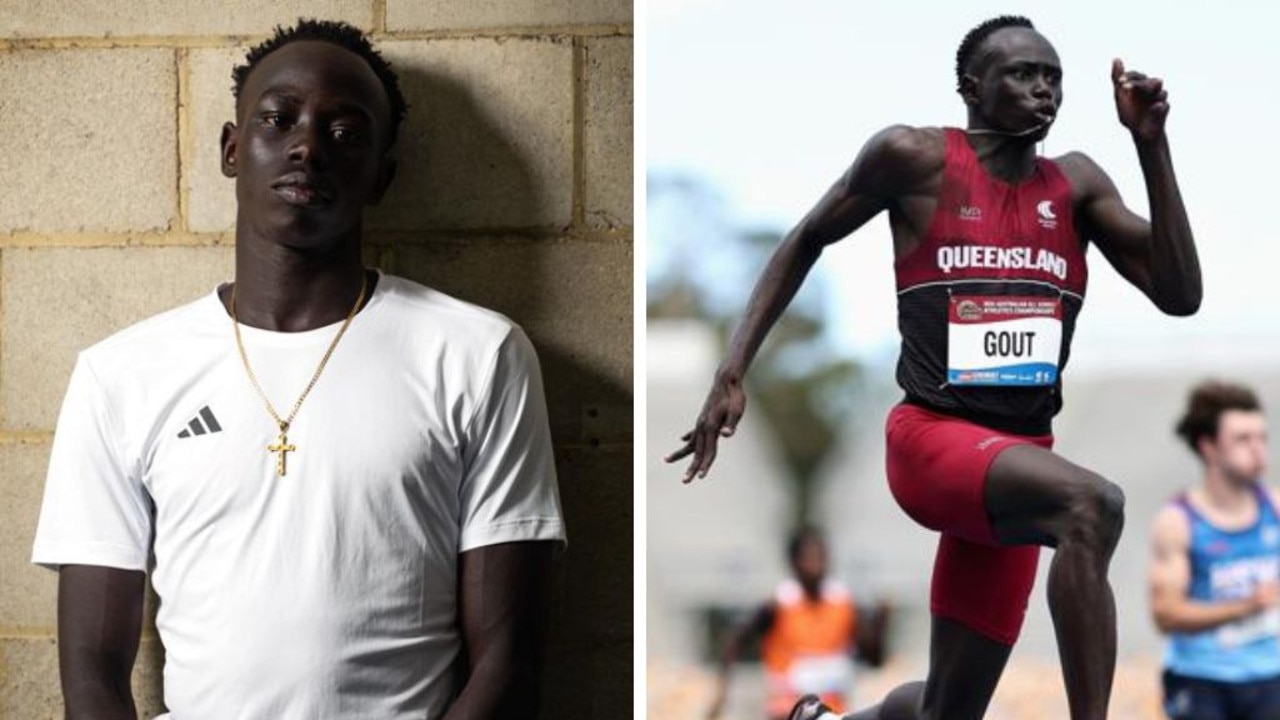The moment superstar sprinter Usain Bolt knew he would create history
JAMAICAN superstar Usain Bolt oozes confidence. So when asked when he knew he was going to win the 100m at the Rio Games, his answer was perfect.
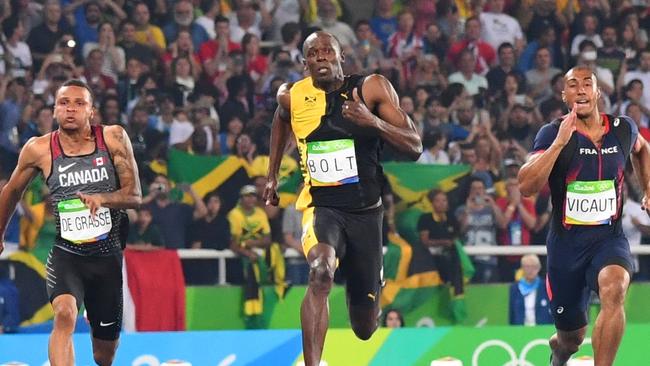
USAIN Bolt knew he had it won after 50 metres.
The first half of his races always decide the outcome, or more to the point, decide how close his rivals are going to get given the Jamaican rarely loses.
Bolt is understandably a slow starter given his size — 195cm — compared to the majority of the other sprinters with his main rival Justin Gatlin standing at 185cm.
His bigger frame takes longer to get moving into rhythm but where things play into his advantage is the length and power of the strides.
Research has shown that an amateur runner often takes between 50 and 55 steps to complete 100m, while an elite sprinter takes in the region of 45.
And the fastest sprinters spend about 60 per cent of the time in the air, with no foot on the ground, while for amateurs it’s more like 50 per cent.
Generally the idea at the start of a 100m race is to take short steps in order to get acceleration but because of Bolt’s height he can’t do that.
Gatlin’s acceleration in noticeable from the gun because of the quick turnover of his steps which gets him to top speed sooner than the Jamaican.
The problem he’s got — which again was evident in Sunday night’s final — is that when Bolt reaches top speed he has a massive advantage over everyone else because he’s taking few steps.
Bolt generally completes a 100m race in about 41 steps — three or four fewer than his rivals.
As four-time Olympic sprint medallist Ato Boldon said in the lead-up to the Rio final: “No one can get away from Bolt far enough to escape his finish”.
And that’s why at the halfway mark of the Olympic final, the Jamaican knew he was going to win because Gatlin wasn’t far enough ahead.
He’d had the second worst reaction time out of the blocks but was comfortable where he was at.
“I know he (Gatlin) always gets a good start and I knew I had to take my time and chip away at the lead,” Bolt said afterwards.
By the 70m mark he was looming up to Gatlin and from there it was a matter of when. He took over the lead in the last 10m and won with clear air on the line.
When asked when he knew he was going to win, Bolt said: “From the start, really. When I got going, got to about 50 metres, I was all right. I could tell I was going to catch him.”
His 9.81sec winning time saw Bolt take ownership of 50 of the fastest 100m times ever recorded.
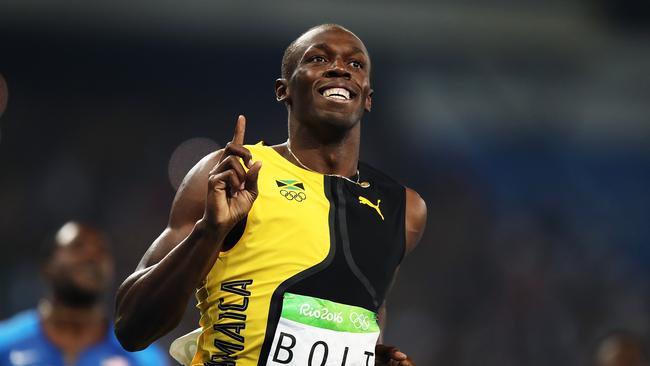
Genetics obviously play a part in creating this phenomenal sprinting machine while the three-time Olympic champion also says the environment and system in Jamaica is a factor.
There is a unique sporting culture in the island nation of just 2.7 million people. Sprinters, rather than footballers, are the nation’s superstars; the annual schools athletics competition, called “Champs”, is played to packed stadiums and televised.
A 2010 study into Jamaica’s sprinting success delved into the impact of a gene associated with explosive running, whereby a bigger than average heart facilitates a faster flow of oxygen to the muscles.
It was found that the frequency of this gene is higher in Jamaicans than west Africans, who in turn have it more than Europeans.
The list of the ten fastest humans in history contains only black men from Jamaica, the US, Canada and Nigeria.
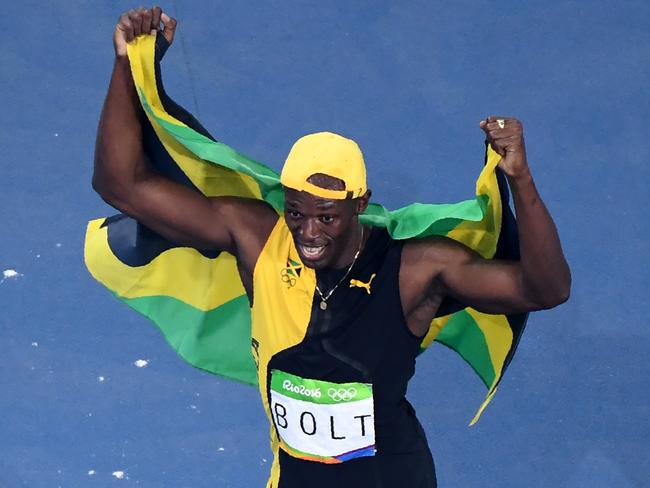
Jamaica’s system has had its issues with drug cheats and was the subject of investigation by leading American sports journalist Richard Moore — ‘The Bolt Supremacy: Inside Jamaica’s Sprint Factory — a couple of years ago.
It came about after a number of the country’s high-profile athletes served bans including former world record holder Asafa Powell and two-time women’s 100m Olympic champion Shelly-Ann Fraser-Pryce.
Earlier this year, Nesta Carter, a sprinter who won gold with Bolt in Jamaica’s 4x100m relay team during the Beijing Olympics was found to have a banned stimulant in his system following the retesting of doping samples from the 2008 games.
Moore concluded that Bolt is likely to be a clean athlete, while also arguing that chaotic administration in Jamaica made it unlikely the nation could execute a sophisticated state-doping system such as that in East Germany in the 1970s and more recently in Russia.
Bolt has never tested positive for performance-enhancing drugs.
Originally published as The moment superstar sprinter Usain Bolt knew he would create history

